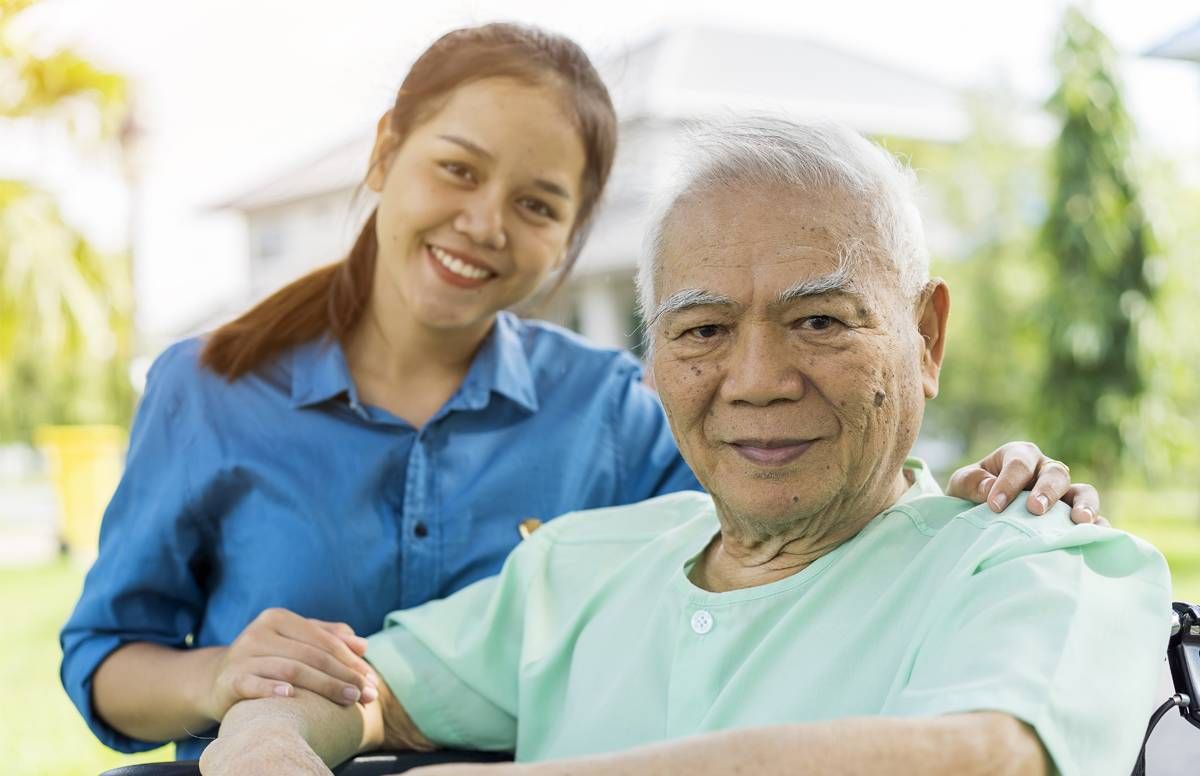Tips on Dementia Caregiving in the COVID-19 Outbreak
How to keep loved ones safe and family caregivers healthy
Caring for a loved one with Alzheimer’s or other dementia is hard enough during normal times. As the coronavirus pandemic continues to affect communities around the U.S., though, it’s not surprising that family caregivers are anxious, unnerved and confused.

If you’re caring for a family member with dementia during this global health crisis, there are ways to minimize stress, care for your family and care for yourself, too.
Dementia itself does not increase the risk of COVID-19; however, dementia-related behaviors may increase risk. People with dementia may forget to wash their hands or take other precautions recommended by the Centers for Disease Control and Prevention (CDC) to avoid contracting the virus. And if they do fall ill, cognitive impairment may worsen.
One of the first signs of illness for people who have dementia is a sudden onset of increasing confusion, according to the Alzheimer's Association. If you notice this in your loved one, contact your health care provider right away.
Maintain a Calm Environment
One of the most important things you can do as a caregiver is to remain calm. The Alzheimer’s Foundation advises caregivers not to raise the alarm about the virus to the person you care for. Limit what you say about it and try not to watch the news if they’re in the room.
It takes a lot more attention and responsibility from family caregivers to make sure all of the home’s occupants are safely cohabiting, according to Lisa Winstel, chief operating officer of the Caregiver Action Network.
"Anything you can do to just keep the routine as consistent as possible, minimizing disruptions as much as possible, will help."
If an older adult lives with you, she says, “this is probably a really good time to review your household policies about policing things that are left around, like small items that could be mistaken for candy.”
Safety issues warrant a second look. You can help reduce fall risk by ensuring that things, like books, are not left on the floor. If your loved one wanders, be sure to remind others not to leave the door unlocked. Keep medications in a locked drawer or cabinet to ensure no unsupervised access.
Our Commitment to Covering the Coronavirus
We are committed to reliable reporting on the risks of the coronavirus and steps you can take to benefit you, your loved ones and others in your community. Read Next Avenue's Coronavirus Coverage.
People living with dementia may need extra or written reminders and support to conduct important hygienic practices from one day to the next, according to the Alzheimer’s Association. That advisory group suggests placing signs in the bathroom and elsewhere to remind people with dementia to wash their hands with soap for 20 seconds. You can help by demonstrating thorough hand-washing.
Whether they live with you or on their own, routine is also very important for everyone involved, Winstel says. “Anything you can do to just keep the routine as consistent as possible, minimizing disruptions as much as possible, will help,” she notes.
Have a Backup Plan
However, it’s also important to have a backup plan during this time, especially if your loved one lives far away. Is there a trusted person available to help out if the home health aide falls ill? Can a neighbor or friend help prepare or deliver meals? Will the local drugstore deliver necessary medications or supplies?
The Alzheimer’s Foundation recommends planning ahead for possible changes in program schedules or plans to shelter in place. You could have activities ready like word puzzles and games, picture albums, music to listen to, special movies to watch and small tasks to engage in, such as folding towels or putting socks together.
Caregivers should also make sure their loved ones are drinking enough liquids. Staying hydrated fortifies the immune system and they might already have weakened systems due to other underlying health conditions. Along with this advice, remember that if you are encouraging the person to drink more, they might have to use the bathroom more often or have increased incontinence.
If it’s possible, try to take your loved one out for a walk, suggests Caroline Cicero, associate professor at the Leonard Davis School of Gerontology at the University of Southern California in Los Angeles.
“We're told to stay home, but if you live in a place where you're not going to be touching other people, I think we should all be going outside getting fresh air and exercising a little bit. This includes taking those with dementia outside and walking around,” she says.
It’s an important activity for everyone’s health and emotional well-being right now.
People in Memory Care Units
The CDC has issued guidance for health care and long-term care facilities on how to minimize the risk of infection of COVID-19. Most facilities are not allowing visitors during this outbreak. So, caregivers are likely feeling additional stress, since it’s that much harder to check up on loved ones, says Winstel. “They worry what will happen when the choices are made about care. Are they taking the right medicine?”she says.
If visits are not allowed, the Alzheimer’s Association recommends asking the facility about options for engaging with your family member — whether by phone, video chats or email. If that’s not possible, find out what else they’re doing to ensure you get regular updates.
Your Self-Care Is Crucial
As caregivers, we need to keep our own state of mind positive, which can be difficult. Stress can trigger changes in eating or sleeping patterns; difficulty concentrating; worsening of your own health problems and increased use of tobacco, alcohol or drugs.
The CDC recommends:
- Take breaks from watching, reading or listening to news stories, including social media. Hearing about the pandemic repeatedly can be upsetting.
- Take care of your body. Take deep breaths, stretch or meditate. Try to eat healthy and well-balanced meals, exercise regularly, get plenty of sleep and avoid alcohol and drugs.
- Make time to unwind. Try to do activities you enjoy.
- Connect with others. Talk with people you trust about your concerns and how you are feeling.
Even though everyone is staying close to home due to the pandemic, caregivers should still reach out for help. It can be difficult to ask, but it’s important to do so, Cicero says.
“Caregivers are probably worn out, tired and maybe frustrated. And with no end in sight, the uncertainty is so hard,” she says.
Cicero suggests caregivers literally take it one day at a time and not feel guilty if they need to take a break.
The Caregiver Action Network Help Desk, staffed by caregiving experts, can provide information to help caregivers navigate complex challenges. These pros can be reached by phone (855- 227-3640) or by online chat and are available Monday through Friday from 7 a.m. to 6 p.m. CT.
Caregivers also can reach out to the Alzheimer’s Foundation of America at 866-232-8484 or the Alzheimer’s Association of America at 800- 272-3900.


